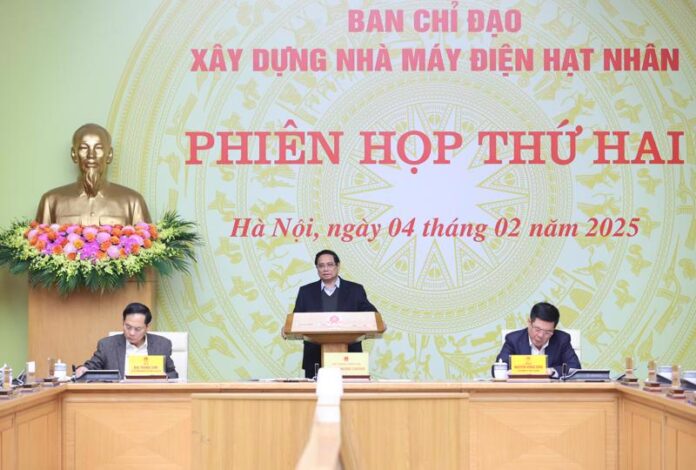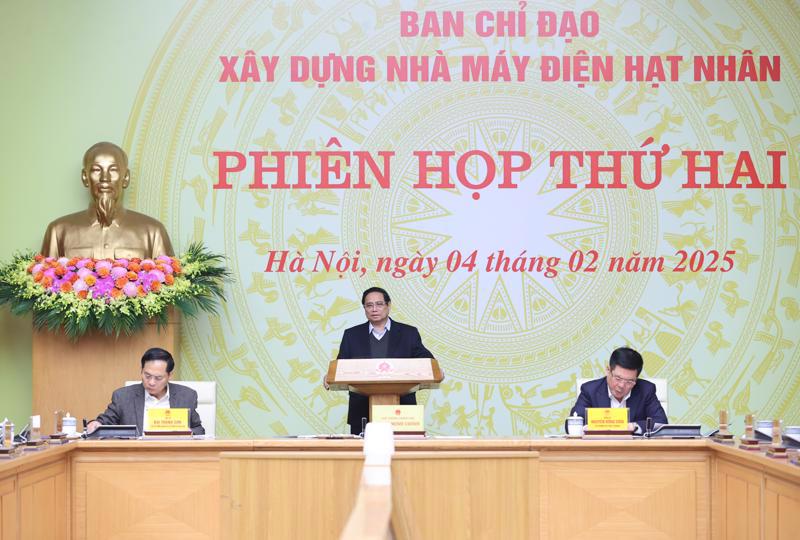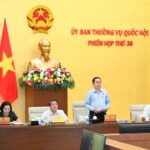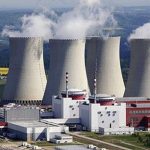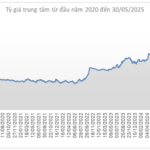On February 5, 2025, Deputy Prime Minister Bui Thanh Son signed Decision No. 245/QD-TTg, approving the master plan for the development and application of nuclear energy for the period up to 2030, with a vision towards 2050.
IMPROVING AND DEVELOPING NATIONAL NUCLEAR INFRASTRUCTURE
According to the master plan for the development and application of nuclear energy for the period up to 2030, with a vision towards 2050, the general objective for the development and application of nuclear energy by 2030 is to have a comprehensive system of laws, mechanisms, and policies, as well as a state management agency for nuclear energy, that is in line with international practices.
The system of research, application, and training institutions in the field of nuclear energy will be streamlined, with upgraded infrastructure and improved human resources, operating effectively. In addition, some key projects that have been approved will be implemented according to schedule.
The plan also aims for advanced regional levels in several fields of science, technology, and nuclear energy applications, as well as widespread and effective use of radiation and radioisotopes in various sectors, contributing to improved productivity, quality, and efficiency in production and business operations, enhanced public health, environmental protection, and ensured nuclear safety and security.
It is necessary to urgently improve and develop the national nuclear infrastructure to facilitate the implementation of the Ninh Thuan Nuclear Power Project and to continue researching and executing the National Nuclear Power Development Program. Additionally, it is important to explore and establish orientations for the promotion of prospecting, mining, processing, and utilization of radioactive ores, taking into account the practical conditions of Vietnam.
The vision for 2050 is to have effective and significant contributions of radiation and radioisotope applications and nuclear energy development to economic and social development, energy security, food security, environmental protection, and sustainability, while ensuring nuclear safety and security.
By 2050, it is envisioned that the level of nuclear science and technology, as well as the application of nuclear energy in various fields, will be on par with the average of developed countries, with autonomous mastery of advanced technologies and techniques, ensuring that nuclear energy applications make effective contributions across sectors.
CONTRIBUTION OF NUCLEAR ENERGY APPLICATIONS IN VARIOUS FIELDS
Specifically, in the field of radiation and radioisotope development and application in medicine, the goal by 2030 is to establish and develop a network of specialized medical facilities in the fields of radiodiagnosis, nuclear medicine, oncology, and radiotherapy, distributed reasonably across regions and localities to serve examination, treatment, scientific research, and training. This will be accompanied by enhanced effectiveness and quality of medical examinations and treatments through improved human resources, the application of advanced techniques and technologies, and enhanced management within radiation medicine facilities.
Research, development, production, and application of certain radiopharmaceuticals and labeled compounds for diagnosis and treatment will be prioritized, ensuring safety and radiation protection for patients, medical staff, and the environment.
Regarding the development and application of radiation and radioisotopes in the field of natural resources and the environment, the general objective by 2030 is to promote the application of nuclear techniques in meteorological and hydrological monitoring and forecasting, basic investigations of water resources, geology, and minerals, environmental protection, and response to climate change. This will be accompanied by investments in infrastructure, equipment, and the development of high-quality human resources for the application of radiation and radioisotope techniques in the field of natural resources and the environment for research, training, and application institutions, aiming for synchronization and modernity.
In the field of agriculture, the plan aims to enhance research and implementation capabilities by 2030, adopting and mastering advanced techniques in the application of radiation and radioisotopes in various areas, including crop and microorganism breeding, plant protection, agrochemistry, soil science, crop nutrition, animal husbandry, veterinary medicine, aquaculture, and post-harvest preservation and processing. The goal is to have some research institutions and applications of nuclear energy in agriculture that are regionally and internationally competitive.
The application of radiation and radioisotopes in agriculture will be strengthened and expanded, contributing to increased productivity, quality, and efficiency, ensuring food security, promoting exports, and actively contributing to sustainable agricultural development in adaptation to climate change.
Concerning the development and application of radiation and radioisotopes in the industrial sector, the plan sets the goal of promoting their use in various industries by 2030. It also aims to produce and manufacture certain types of radiation equipment and radiation measurement devices that are in high demand in the socio-economic sectors, replacing imports. Commercialization of products and services generated from research results will be prioritized.
There will be an emphasis on researching, adopting, and mastering new technologies related to radiation and radioisotope applications in areas such as industrial irradiation, non-destructive testing, labeling techniques, imaging, and nuclear control systems. Priority will be given to technologies with high demand and competitiveness, serving the development of the industrial sector and other domestic sectors in the subsequent period.
By 2030, the goal is to restructure functions, upgrade technical infrastructure, and develop high-quality human resources for existing research and training institutions to meet practical needs and quality standards in research, as well as in the development and application of nuclear science and technology in various fields. It also aims to enhance technical support capabilities for ensuring nuclear safety and security in the development and application of nuclear energy and the implementation of the Ninh Thuan Nuclear Power Project.
To achieve these goals, the plan proposes nine major groups of solutions, focusing on perfecting the organizational management system, developing and improving the legal system and mechanisms and policies related to the development and application of nuclear energy, human resource development, building and enhancing scientific and technological potential, ensuring nuclear safety and security, raising awareness and gaining community support, promoting international cooperation and integration, and addressing investment, financial, and capital mobilization aspects.
Proposed Law on Atomic Energy (amended)
The Ministry of Science and Technology proposes to build an amended Law on Atomic Energy to complete the legal framework serving the purpose of developing atomic energy applications for greater contributions to socio-economic development, environmental protection, and strengthening national security.



















![[IR AWARDS] June 2025 Disclosure Calendar: Mark Your Dates](https://xe.today/wp-content/uploads/2025/06/HinhT6_01-218x150.png)






